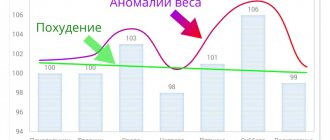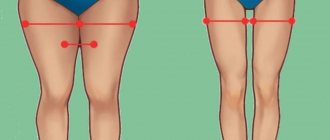September 10, 2021 Admin Home page » Tips and tricks
Find out whether you need to take a break from training or whether you should train endlessly. Important tips and recommendations about physical activity to create a beautiful figure and good health.
Many have wondered whether it is necessary to take a break from training and how often? After all, there are days when you don’t feel like training, but you go to the gym, the body gets a load, but you don’t get much pleasure, everything is based on moral and volitional qualities, even if it doesn’t happen often, but everyone has had such a condition, you will agree.
Let's look at the main questions below and give answers to the thoughts that torment the mind about what and how to do correctly:
Introduction
Recovery between workouts can be roughly divided into two stages. The first is getting rid of physical fatigue, that is, the feeling of complete exhaustion that occurs after every hard workout. The feeling of fatigue in individual muscle groups is the summative effect of general fatigue of the entire body. After completing a workout, the body needs to get rid of this physical fatigue. Having gotten rid of it, he can move on to the next stage of recovery - building muscle and strength. Provided that you did not rest enough, or more precisely, “underrecovered” after the last workout, keep in mind that in the next one, one fatigue will already be superimposed on the other.
Why do you need rest between workouts? As you already understood from the above, the body must overcome physical fatigue before moving on to building muscle. If the body does not have time to overcome it before the start of the next workout, then there can be no talk of any muscle growth. Thus, by stacking one fatigue on top of another, you are driving your body into a state of excessive exhaustion. The body in such a situation will not work to build muscle, but to maintain vital functions. Experiencing chronic fatigue, your body will not be able to carry out muscle growth processes. So don’t come to the fitness club if you have a good rest and have not been able to fully recover. It is to optimize the process of building muscle and increasing strength that rest between workouts is formed.
Break between training Up to 10 days
If you miss 1 workout or a whole week, no terrible processes will happen in your muscles. According to scientific data, changes in muscle fibers occur after 10 days without training.
I’ll say even more: during heavy physical activity, skipping 1 week should be done 1-2 times a year to restore muscles and improve further progression of loads.
Therefore, skipping training in this case will not reduce your sporting achievements and do not reduce the volume of working weights.
Dream
Just as training and nutrition are important to your performance, so is sleep. It is during sleep that those biochemical processes and reactions take place in the body during which healing and increase in muscle fiber size occur. That is, your muscles do not grow in the gym, but during sleep. Recovery rest between workouts proceeds as follows. During training, you injure your muscles, while eating, you load your body with building material, which performs its functions during sleep and due to this, your muscles grow and increase in size. It is quite natural that if you do not get enough sleep, your muscles will not grow. Even if you only miss an hour or two of sleep, it will ultimately affect your training and results. In the case when you sleep little at all, there can be no talk of any result from your training. The best conditions for muscle growth will be those in which you can afford to sleep a little more than usual, thus increasing the rest time between workouts. It’s even better if you get up not because you were woken up, but on your own. To do this you will have to adhere to a certain regime. Go to bed at the same time every day in order to adjust your biorhythms as needed.
A little more than usual, how much? Before answering this question, we will once again remember that each person is individual by nature and everyone will have their own time for sleep. Sleep, which is directly included in the rest between workouts, can take someone even four hours in order to feel well-rested. Some people need six, some eight, some ten. At the same time, we all know from childhood that the average is eight hours of sleep. This is true in most cases, but does not take into account the individual need for sleep, depending on a person’s lifestyle, type of activity, level of physical activity, and a great many other factors. So, what figure will we start from? Everyone will choose this figure individually, and the recommendation will be as follows.
Try to increase the rest time between workouts that you usually spend sleeping by one hour, or at least half an hour. But you don’t need to strive for such a figure right away. Try gradually increasing your sleep duration by 15 minutes once a week. Let's say if you start working out in the gym, your need for sleep will increase, therefore, you will have to spend more time sleeping. If you previously spent 6 hours sleeping, try to gradually increase this time period. First, in the first week up to 6 hours 15 minutes, in the second up to 6:30, in the third up to 6:45 and ultimately, in the fourth week, that is, a month from the start of the experiment, you will have to increase your sleep time until 7 o'clock. But remember that you should not do anything suddenly, as this will be stressful for the body. Increase your sleep time gradually to best adjust your body clock to your new routine.
What will such an increase in sleep give us? In terms of muscle, such an increase will significantly increase your biological needs for recovery in general and, accordingly, more time will be spent on muscle growth. This means that you will best provide your muscles with favorable conditions for growth. Recovery between workouts will be more favorable, and its effectiveness will increase significantly.
How to achieve such an increase in sleep time? Simple enough. In the evening after work or school, do not sit too long in front of the computer or TV. Remember. Only long and sound sleep will allow you to fully realize your potential.
How long does it take to get out of shape?
There is a study that found that athletes with physical disabilities who trained regularly for at least a year and then suddenly stopped lost about half their aerobic fitness in three months. There is also a study that shows that beginner exercisers who have been training for about two months experience a complete loss of aerobic and strength training after two months of not training. In general, losses are not that fast, even if you are a beginner.
Then a new study highlighted in an article in Outside Magazine explained that you should never stop exercising for more than two weeks if you can help it.
In this article, researchers explain how when you first start exercising, you get stronger very quickly, in just a few sessions, because at this stage your muscles are not very large. These gains occur primarily through neuromuscular adaptation rather than musculoskeletal adaptation. Essentially, this means that even before your muscles start getting bigger or thicker, your brain will be better able to communicate with your muscles and recruit more of them to do its bidding.
On the other hand, when it comes to endurance training, you primarily experience an increase in plasma and blood volume, so after a few weeks in an endurance training program, your heart rate will not rise as high as it did when you started training for the first time. You can also get rid of body heat better by sweating and be better able to use fatty acids as fuel.
In this article, the researcher explains that if you continue strength training, you will gain muscle mass and strength, and if you continue endurance training, after six months you can increase your blood volume by 27 percent.
Online training program: order the program
You can roughly expect it to take twice as long to get back in shape as the time you spent inactive.
This all sounds good, right? Unfortunately, researchers continue to say that all of these benefits may disappear if you stop exercising for about 10 to 14 days. During this time, your maximum oxygen utilization decreases at a rate of approximately 0.5% per day. After a two-week break, your brain's ability to recruit muscle drops by 1-5%. After three to four weeks, your muscles begin to atrophy, your fatty acid intake decreases, and you become more sensitive to fluctuations in blood sugar.
After all, the researcher says you can expect to roughly take twice as long to get back in shape as the time you spent inactive. So, for example, if you take two weeks off, it may take four weeks to get back to your previous fitness level. But as we said earlier, if you already have a good training history, the time required to regain fitness can certainly be reduced. And this break can also be used to our advantage through what is called supercompensation.
Supercompensation is defined in sports science theory as the period after training during which the trained function/parameter has a higher performance than before the training period. This is how we get to where we are today.
Break from training
Rest
So, wondering why you need rest between workouts, you already understand that you don’t need to come to the fitness club if you feel that you haven’t had enough rest and recovery.
But what can be considered a sufficient measure? How many hours or days should you spend on rest? These things depend on a large number of factors. Your age, lifestyle, quality of sleep, where and who you work or study, how much stress there is in your life, how things are with mental stress, etc.
Recuperative rest between workouts is highly dependent on a person's individual qualities, traits, and lifestyle. If you lead a relaxed lifestyle, you are not particularly concerned about making money and supporting your family, you eat well and sleep a lot, then by working out three times a week, you will have time to recover without any problems. In a situation where you need to support a family, small children, work two jobs, do various housework, and after all this you still go to the fitness club and give your all, keep in mind that for recovery and, accordingly, It will take you much longer to grow. Two or even three times more.
Of course, you would like to hear specific numbers about exactly how long rest should take between workouts. But I will remind you once again that bodybuilding is a very individual sport, and therefore each person will need a different amount of time for rest. Take for example two equally physically developed guys. If they eat the same and sleep the same amount of time, but their training program is different, then the recovery time will be different. If they train according to the same program, eat the same, but one sleeps longer, the second will take more time to recover. If they train the same and sleep the same amount of time, but their nutrition is different, this will also affect their recovery time. And these are only three factors, provided that we did not take into account their psychological, mental workload, busyness with study or work, the presence or absence of a family or children, and so on, so on, so on.
Recovery
What to do in a situation where you don’t know how much time you need to spend on recovery and what should be the rest time between workouts? In such a situation, you will have to resort to a universal answer that will suit everyone. It sounds like this - be guided by how you feel. Listen to your body. Let him rest for 24 hours (training every other day). Go to training. Feeling tired and unable to give your best? Try 48 hours of rest (two days of rest between workouts). Still tired during training? Rest for 72 hours (three days of rest). And so on until you find the optimal rest time for yourself.
Learning to listen to your body is critical. If you feel that training every other day is accompanied by a feeling of fatigue that does not leave you, increase your rest time. There is no point in showing persistence and accumulating fatigue, since the very essence of training - building muscle - is lost in this case. This has already been mentioned above.
So, we draw the following conclusion. Learn to maintain the required rest interval by listening to your body, and it will tell you how your recovery went between workouts. You should not come to the fitness club if you still feel tired.











